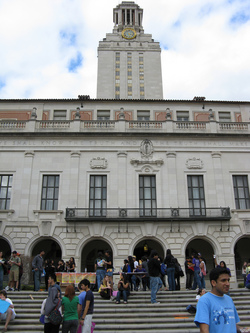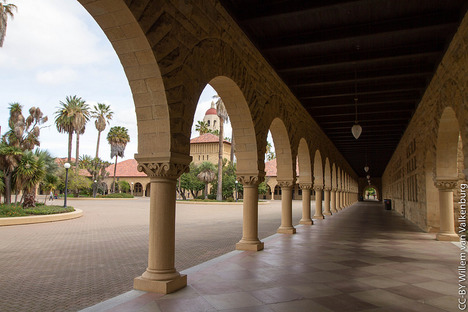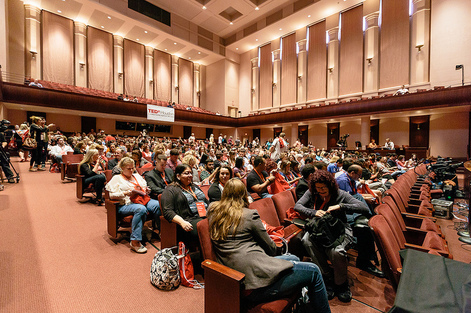Short Bio
 University of Texas at Austin tower. University of Texas at Austin tower.
Angela Valenzuela is a professor in both the Educational Policy and Planning Program Area within the Department of Leadership and Policy and the Cultural Studies in Education Program within the Department of Curriculum & Instruction at the University of Texas at Austin where she also serves as the director of the University of Texas Center for Education Policy.
A Stanford University graduate, her previous teaching positions were in Sociology at Rice University in Houston, Texas (1990-98), as well as a Visiting Scholar at the Center for Mexican American Studies at the University of Houston (1998-99). In 2007 as a Fulbright Scholar, she also taught in the College of Law at the University of Guanajuato in Mexico. Valenzuela is also the author of many articles and book chapters, as well as the following texts: Subtractive Schooling: U.S.-Mexican Youth and the Politics of Caring, Leaving Children Behind: How "Texas-style" Accountability Fails Latino Youth, and Growing Critically Conscious Teachers: A Social Justice Curriculum for Educators of Latino/a Youth. Since 2004, she has operates a widely-read education blog titled, Educational Equity, Politics, and Policy in Texas. Dr. Valenzuela serves on the National LULAC Higher Education Committee in Washington, D.C., and she is the Executive Director of the National Latina/o Education Research and Policy Project (NLERAPP), a consortium of ten institutions that enhances teaching for high school youth in Texas, California, Wisconsin, Chicago, New York, Colorado, New Mexico, and Arizona. NLERAPP aims to create teacher education pathways for Latino/a youth, nationally. A previous Fulbright Scholar, Valenzuela spent her 2007-08 academic year in Mexico where she taught in the College of Law at the University of Guanajuato in Guanajuato, Guanajuato and conducted research in the areas of immigration, human rights, and binational relations. Valenzuela's research and teaching interests are in the sociology of education, race and ethnic relations, education policy, school partnerships, urban education reform, and indigenous education. |
|


